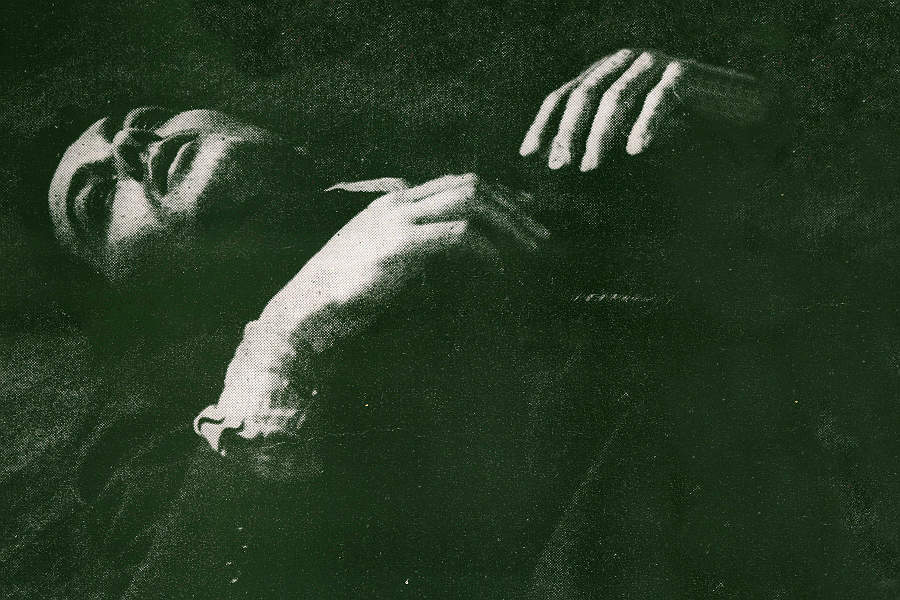Literature in Pop!

Inspired by last week’s World Book Night, Nathan Richardson takes us through some of his best-loved literary songs…
Last Tuesday (23rd April) was World Book Night. In cities across the U.K. a series of specially produced books were handed out to members of the public in a bid to promote and celebrate literature. In light of this, The Double Negative playlist this week is themed around … books! Books feature in many ways in literature, from The Beatles and their song about paperback writers, to The Divine Comedy and their track Lucy, which is based on a Wordsworth poem, and features in this playlist. These tracks are, of course, just some examples, so please contribute your own ideas at the bottom!
Cemetry Gates – The Smiths
The Smiths are one of the most definitive guitar bands. Johnny Marr left a generation aghast at how they could emulate his bravura style. But for many, for the withdrawn, bedsit failures of the world, it was the words of Morrissey where the true excitement of the band lay. The words so luxuriantly literary, so profound, and affecting, they became something of an Apostles’ Creed.
From the beginning they celebrated literature as something exciting and joyous, and the entire cannon – the words, the interviews, the art-work – was littered with literary references. Oscar Wilde, George Eliot, Elizabeth Smart, Shelagh Delaney, Virginia Woolf, and so on: all had been appropriated by The Smiths.
This track, from The Queen Is Dead, has been included for perhaps quite cursory reasons; it references writers John Keats, W.B. Yeats, and Oscar Wilde. But it captures the essence of the band also. The scene: two individuals meet at a cemetery on a sunny day. The speaker (Morrissey, we shall presume) manipulates the scene to espouse his thoughts on death, and plagiarism in the creative process, but we return to the two figures, who both cling so dramatically to literature’s illustrious dead like some form of self-identification. The friend has Keats and Yeats, and Morrissey has Wilde. This was The Smiths at their best.
Lucy – The Divine Comedy
It would be criminal to exclude The Divine Comedy. They take their name, of course, from Dante’s 14th Century epic poem, but their oeuvre itself is replete with literary references and allusions. Indeed, their track, The Booklovers from Promenade (1994) makes reference to some seventy-three novelists, but perhaps that is just a little too fanciful. Instead we have chosen their track Lucy, in which Neil Hannon conflates William Wordsworth’s cycle of poems (known as The Lucy Poems) into a fine piece of popular song. Written in ballad metre, in a suitably elegiac style, Wordsworth muses on his usual subjects: beauty, nature, love, death.
Fast forward some two hundred years, to 1993, and this coy, young Northern Irishman gave the poems something of a renaissance. Melodic, but not cloyingly so, Hannon captures the melancholy of the poems perfectly, and for me it remains a highlight of his career. It’s absurd to think this was released in 1993, the year Suede won the Mercury Music Prize, the year grunge began to give way to Britpop, and amid it all there was Neil Hannon and his Baroque Pop putting William Wordsworth into popular song. But I suppose that’s what attracts me to him…
Bad Lord Byron – Would-be-Goods
Named after a story by writer E. Nesbit, and formed toward the end of the 1980s, the Would-be-Goods are, to my mind, the greatest lost band. Well, I say lost: they sell records, they occasionally play live, but their lowly status absolutely and incredibly belies their merit.
This track comes from their album Brief Lives (2002), a title borrowed from the English historian John Aubrey’s late seventeenth century collection of short biographies – a book concerning figures ranging from Francis Bacon, Sir Walter Raleigh, and William Shakespeare. The Would-be-Goods’ Brief Lives operates in a similar fashion. The album consists of sixteen tracks, mostly focusing on (presumably) fictional characters: the bedraggled hero that lives above Elephant and Castle, or the hapless Whitsun bridesmaid, but also actual figures from history, such as the artist Aubrey Beardsley, and Richard III. And indeed Lord Byron himself figures. After notes upon his elusive life, and relations with Lady Caroline Lamb and Claire Clairmont, Jessica Griffin sings, referring to the Lord’s peripatetic life: “Oh the glory of Greece, and the grandeur of Rome, but there’s not a place, not one damn place to call home.” This is an unashamed nod to Edgar Allan Poe and his poem To Helen.
The band is steeped in literature, and this track is a wonderful expression of that. I adore Jessica Griffin’s precise English accent, her short melodic songs, and her often quite saddish view of the world, and while I personally would wish to see them experience international fame, for her face to adorn British banknotes, I am quite sure it is not what they set out to achieve. I think it was W.H. Auden who said something about while some bad poets may be remembered; a good poet is never forgotten…
There She Goes, My Beautiful World – Nick Cave & the Bad Seeds
An artist who wants to achieve international recognition and live eternally through his work pleads with his elusive muse to grant his wish. Throughout this song, Cave lists many writers from many periods of history that faced great obstacles in creating their art. And so we hear of St. John of the Cross, who wrote while in prison, Karl Marx, and how he ‘squeezed his carbuncles’ while writing Das Kapital. Cave may mis-pronounce Nabokov, and erroneously attribute Chinese Rocks to Johnny Thunders (it was written in fact by Dee Dee Ramone and Richard Hell), but this is a wonderfully compulsive and thrilling piece of music. And it is the only song I know of that mentions my personal favourite writer, Philip Larkin.
Burn It Down – Dexy’s Midnight Runners
Kevin Rowland has always struck me as a romantic. That is, he is always searching for something that probably doesn’t exist, and is unattainable even if it does. A thematic preoccupation for thirty years has been his Irish heritage. An Irishman in England. There is always a sense of displacement in his work. He reflected this in the 1980s, and on his most recent record, One Day I’m Going To Soar (2012).
This track, which opens their debut record, Searching For The Young Soul Rebels (1980) presents Rowland as something of an angry young man, and between quite spiteful statements (‘Shut your fucking mouth ’til you know the truth’), he produces an extensive list of Irish writers. Everybody from Oscar Wilde to Lawrence Sterne are mentioned, and more obscure figures too, such as Benedict Kiley and Jimmy Hiney. I’m not certain what the intended effect of this is; I suppose these names represent his “home”, but Kevin, you cover an absolute wealth of Irish literature, but omit two of its biggest names: Swift and Yeats. Why?!
Something Wicked – British Sea Power
Not noted for being especially literary, there are many literary references in their music, from Dostoevsky, to Lermontov, Hašek, Betjeman, Primo Levi, George Orwell, and this track, from their debut, The Decline of British Sea Power (2003), which takes its title from Ray Bradbury’s novel Something Wicked This Way Comes. It may also be worth mentioning that many of their early artwork was adapted from book covers; Childhood Memories, for example, came from F. Frazer Darling’s Wildlife of Britain.
Golden Hair – Syd Barrett
When Syd Barrett’s erratic mental states became so extreme his bandmates were forced to carry on without him, what resulted was The Madcap Laughs, a solo Barrett album, released at the beginning of 1970s. The colourful psychedelic sound infused with childish English folklore that Pink Floyd became noted for was dropped for a much more stripped-down, acoustic sound. It’s an excellent record; a fascinating, compulsive record.
This track takes its words from a James Joyce poem which was included in his 1907 collection, Chamber Music. Sparse and sad, Barrett strums away, and mumbles the words, and it’s difficult not to see this bleak and brittle track as a sign of a man on the verge of a terrible breakdown…
Nathan Richardson





